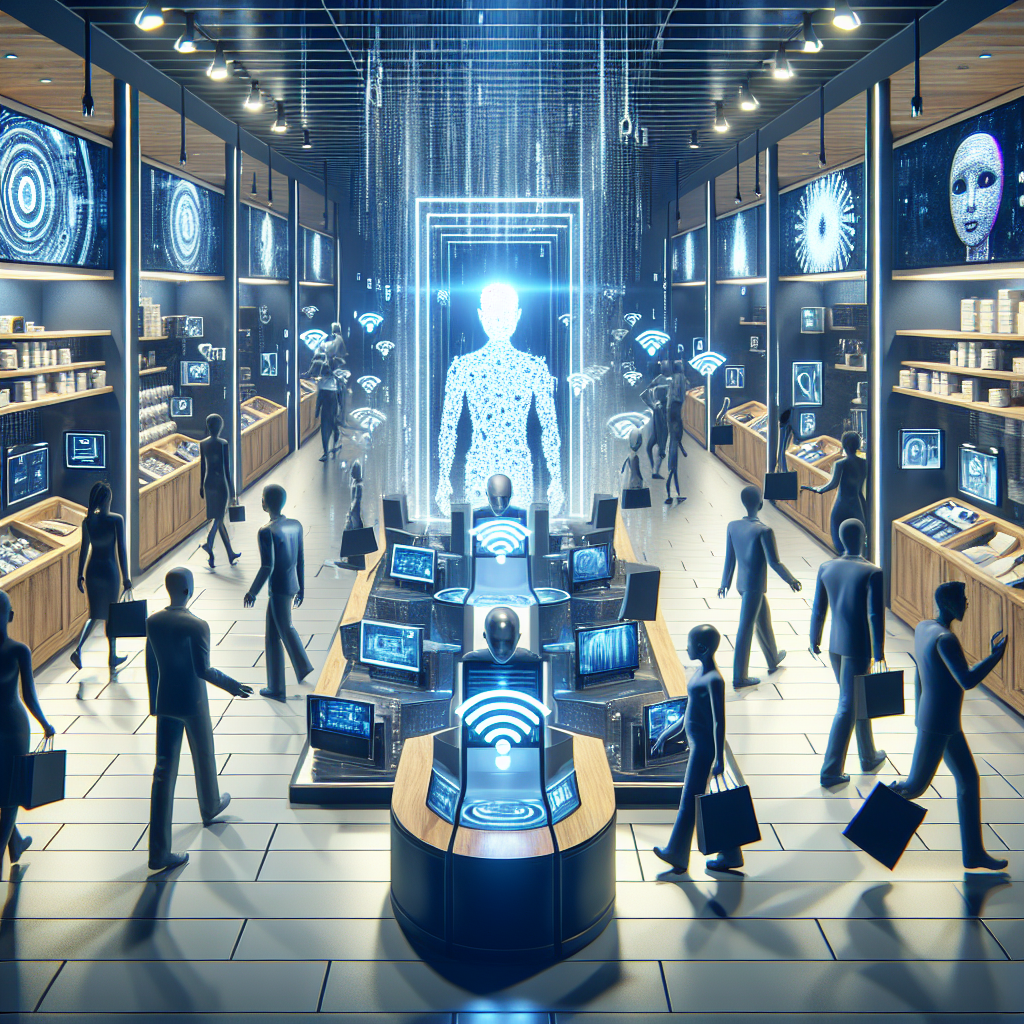Artificial Intelligence (AI) has revolutionized the retail industry in recent years, offering new ways to improve customer experiences, streamline operations, and drive sales. While AI has the potential to bring significant benefits to retailers, it also comes with risks and potential consequences that must be carefully considered. In this article, we will explore the risks of AI in retail, including potential consequences and concerns that retailers should be aware of.
1. Data Privacy and Security Concerns
One of the primary risks associated with AI in retail is the potential for data privacy and security breaches. AI systems rely on vast amounts of data to make informed decisions, including customer information, purchasing history, and behavior patterns. This data is often collected and stored by retailers, making it a target for cybercriminals looking to exploit vulnerabilities in AI systems.
Retailers must take steps to protect customer data and ensure that AI systems are secure from potential threats. This includes implementing robust security measures, such as encryption, access controls, and regular security audits. Retailers should also ensure that they are compliant with data protection regulations, such as the General Data Protection Regulation (GDPR) in Europe, to avoid legal repercussions.
2. Bias and Discrimination
Another risk of AI in retail is the potential for bias and discrimination in decision-making processes. AI systems are trained on historical data, which can contain biases based on factors such as race, gender, or socioeconomic status. If these biases are not identified and addressed, AI systems may perpetuate discriminatory practices, leading to negative consequences for customers and retailers alike.
To mitigate the risk of bias and discrimination in AI systems, retailers should carefully monitor and evaluate the data used to train their algorithms. They should also implement measures to ensure transparency and accountability in AI decision-making processes, such as providing explanations for AI recommendations and allowing for human oversight of AI systems.
3. Job Displacement
The widespread adoption of AI in retail has the potential to automate many tasks currently performed by human workers, leading to concerns about job displacement and unemployment. AI systems can perform a wide range of functions, from inventory management to customer service, more efficiently and accurately than humans, making it possible for retailers to reduce their workforce and cut costs.
While AI has the potential to create new job opportunities in areas such as data analysis and AI system maintenance, retailers must be mindful of the potential impact on their existing workforce. Retailers should consider retraining programs and other initiatives to help employees transition to new roles as AI technology becomes more prevalent in the industry.
4. Customer Trust and Satisfaction
AI systems play a crucial role in shaping the customer experience in retail, from personalized product recommendations to chatbots that provide customer service. However, if AI systems make mistakes or fail to meet customer expectations, it can erode trust and satisfaction, leading to negative consequences for retailers.
To maintain customer trust and satisfaction, retailers must ensure that AI systems are accurate, reliable, and transparent in their decision-making processes. Retailers should also provide customers with the option to interact with human representatives when needed, to address concerns or issues that AI systems may not be able to handle effectively.
5. Regulatory Compliance
As AI technology continues to evolve and become more prevalent in the retail industry, regulators are increasingly focused on ensuring that retailers comply with relevant laws and regulations governing AI systems. Retailers must be aware of the legal requirements related to AI, such as data protection, consumer rights, and algorithmic transparency, to avoid potential legal consequences.
Retailers should work closely with legal experts and regulatory bodies to ensure that their AI systems are compliant with applicable laws and regulations. This includes conducting regular audits of AI systems, documenting decision-making processes, and providing transparency to customers about how AI technology is used in the retail environment.
FAQs
Q: What are some examples of AI technology used in retail?
A: AI technology is used in a variety of ways in the retail industry, including personalized product recommendations, inventory management, pricing optimization, and customer service chatbots.
Q: How can retailers mitigate the risks of AI in retail?
A: Retailers can mitigate the risks of AI in retail by implementing robust data security measures, monitoring for bias and discrimination in AI systems, providing transparency and accountability in AI decision-making processes, and complying with relevant laws and regulations.
Q: What are the benefits of AI in retail?
A: AI technology offers retailers the ability to improve customer experiences, streamline operations, drive sales, and gain valuable insights into consumer behavior and trends.
Q: How can retailers ensure that AI systems are transparent and accountable?
A: Retailers can ensure that AI systems are transparent and accountable by providing explanations for AI recommendations, allowing for human oversight of AI systems, and documenting decision-making processes to ensure transparency.
In conclusion, while AI technology offers retailers the potential to revolutionize the retail industry, it also comes with risks and potential consequences that must be carefully considered. By addressing concerns such as data privacy and security, bias and discrimination, job displacement, customer trust and satisfaction, and regulatory compliance, retailers can maximize the benefits of AI technology while minimizing the risks. Retailers should work closely with experts in AI technology, data security, and legal compliance to ensure that their AI systems are secure, ethical, and compliant with relevant laws and regulations.

